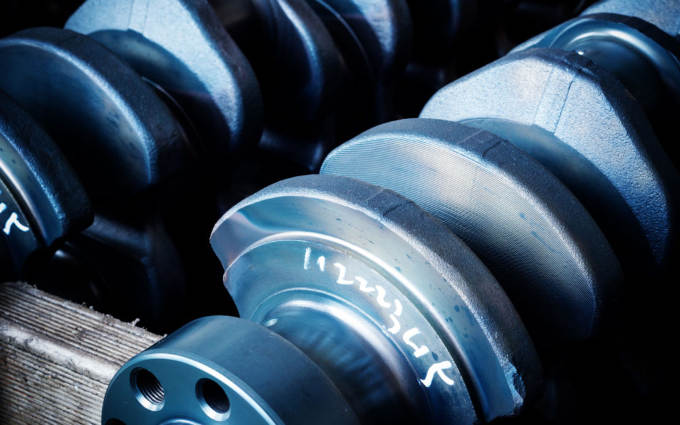What are the symptoms of a failing drive shaft?

Cars move forward when you step on the gas, that’s a fact of life. But how they do that remains scarce knowledge even among experienced drivers. If you are interested in knowing the powers that make your grocery runs and work commute possible, the drive shaft is a good place to start.
What is a driveshaft?
The drive shaft is a necessary component in transmitting torque to the car’s wheels. Torque is the rotational force or the force that makes rotational motion possible. The drive shaft is responsible for transferring the torque from the transmission to the differential. Then, it’s the differential’s job to transfer this force to the front wheels so that the car moves forward.
The configuration and location of a drive shaft differ in every car model. For example, four-wheel drive vehicles and those small distances between the axle and the engine use a single-piece shaft. Other cars use two- or three-piece drive shafts to cover the long distance between the axle and the engine.
However, regardless of whether your car is a front-wheel drive or a four-wheel drive, having a drive shaft in poor shape is going to have the same effect–your car won’t move. There is no torque to move your wheels forward if the drive shaft is defective. Given that the drive shaft sits under and is never visible unless you purposely check it, how do you know when your drive shaft has problems?
What are the signs of a bad drive shaft?
Shuddering/vibration
In any car component, nothing good seems to ever relate to vibrations, especially intense ones. Drive shafts have bushing to minimize vibrations. Casual wear and tear can speed up the deterioration of the bushings making your feel uncomfortable vibrations in your ride.
It’s best to check this as soon as you feel it because when other transmission components might get severely damaged if you let it on.
Knocking noise
Knocking noise when is another bad news. If you hear pretty bad knocking noises as you drive, there are many possible culprits, and a bad drive shaft could be one–particularly a bad slip yoke.
A slip yoke is a vital part of the drive shaft that lets the shaft flex when the vehicle travels over a rough, rocky patch. It ensures that the transfer of torque is continuous even over rough terrain.
The knocking noise could be coming from a bad slip-yoke.
Problem with turning
If you can’t make a turn smoothly, one of the first things to check is the drive shaft. If the drive shaft is damaged, it will prevent your wheel from turning properly. You have less control of your vehicles this way which is all the reason you need to have it checked immediately.
Conclusion
Because the drive shaft is a vital component of your car’s drivetrain, damage to the drive shaft compromises your car’s drivability. Bring your car to your trusted mechanic if you suspect drive shaft problems. They will be able to properly troubleshoot, clean, re-grease, and align the components of the drive shaft if needed.